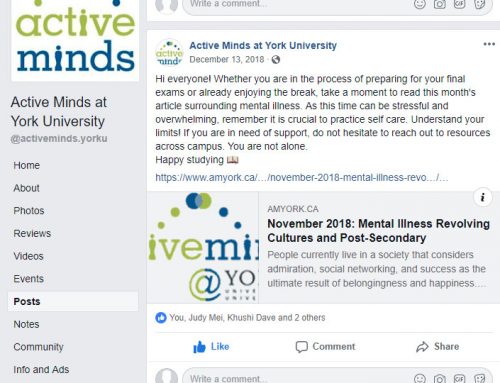From the moment of its conception in 2010, Bell has made inconceivable strides to starting the conversation about mental health. They’re continuous conversation and financial backings have brought the lingering shadows of mental health suffering to the forefront where it could be acknowledged, educated about and accepted.
The campaign itself is financially generated through every tweet, Facebook message, text in where Bell would donate 5 cents. In 2010 when the program began, it initially began with just over 66, 000, 000 interactions. Over the years, Bell has continuously seen exponential growth, with 2016 topping at over 125, 000, 000 interactions. This year, 2017 is being expected to be undoubtedly promising. Earning over millions of dollars in the past year, Bell has devoted to contributing to four premises: anti-stigma, care and access, workplace health, and research.
The imperative nature of having an open conversation is one of the strategic ways to eliminate stigma and associating bias. The unfortunate reality is that people with mental illness often internalize this discrimination and prejudice and therefore, develop feelings of guilt and shame. Further consequences have a rippled effect with people potentially experiencing isolation, depression and negative societal attitudes only assures them that their mental state and wellbeing is a back burner headache.
Furthermore, Bell Lets Talk has propelled their fight by funding a number of various organizations across the country in hopes of constructing community change. Last year, through the generous funding of Bell Lets Talk, AGIR en sante mentale, was able to offer EMILIA – Empowerment of Mental Illness Service through Life Long Learning and Integration Action. Execution of EMILIA provided the opportunity for people to educate themselves on fighting stigma and laying the foundation to build inner-community networks.
Not only is transforming language and understanding crucial to societal revolution, but care and access serves as an underlying necessity. Bell Lets Talk funding has allowed for grassroot organizations, mental health facilities and public institutions to provide resources to citizens to access whenever it is convenient. Dr. Alana Hirsh, one of the prominent expert representing the Bell Lets Talk program, noted that “When I work with them now, I don’t just see people who are suffering, I see myself, and all of us: human and fragile and needing support to thrive. And I do not feel ashamed of this. I feel connected. I feel freed”. Her statement is the progressive approach that highlights the need for an integrative humanistic approach to assisting those with mental illness. For instance, $150, 000 from Bell Lets Talk has enabled the Canadian Red Cross to not only treat physical symptoms but cater to people’s emotional well-being.
However, there are numerous other issues that people with mental illness still face. The forefront emphasis on mental illness is relatively new and adjusting the care system to cater to mental illness has been a solid improvement. Major acknowledgement from Bell Lets Talk has reinforced the vision for a more integrated health care system.
Similarily, according to the Mental Health Commission of Canada, they have also transformed workplace safety into a more inclusive system where safety expands to more than just physical caution. Bell, initiated this importance by adopting the National Standard of Canada for Psychological Health and Safety in the Workplace. The urgency has pushed other corporations like Bell to adopt and implement this model. This translates to increased productivity seeing as workplaces would be equipped with tools, resources to help protect their employees mental wellbeing and avoid psychological harm in the process. Pauline Brandes, director for the Human Resources at the University of British Columbia claimed that over 70% of the people she sees, have psychological issues relating to the workplace or work related injury. She highlighted the key aspect of incorporating psychological health and monitoring as something to be a part of the culture. It is a revolutionary step to incorporate mental illness, and with enough awareness, it will become a fluid integration.
Research is also vital because invaluable research is what assists in the guidance of treatment plans. This year, Bell Lets Talk has gifted Queens University with the renewing of the $1 million Bell Canada Mental Health and Anti-Stigma Research Chair. Under the appointment of internationally-renowned professor, Dr. Heather Stuart, she will be enabled to continue her work on how to reduce stigma. Through the collaborative nature of her work, she can seize the opportunity to raise awareness while simultaneously stress the importance of recognizing mental health research along with its implications.
Bell Lets Talk campaign though has not seen a decade of its existence, rightfully can still be recognized as a powerhouse to its undoubted commitment to mental health. Its revolutionary stance has been an admirable practice to other corporations and has seen a ripple effect on local and national levels. Bell Lets Talk has started the conversation that no one wanted to discuss, and has confidently, kept it going.


























